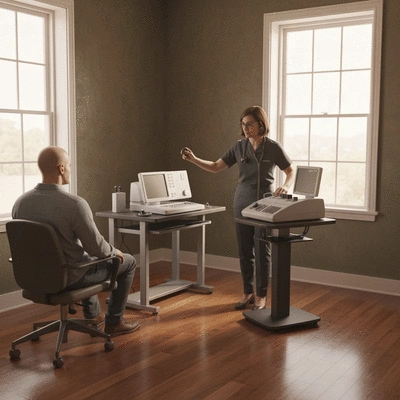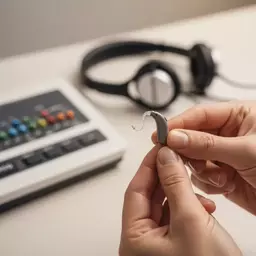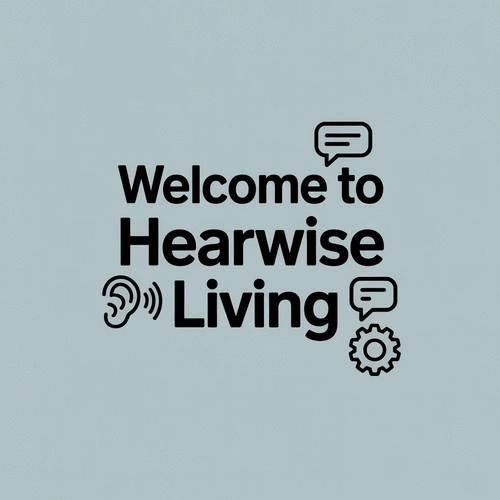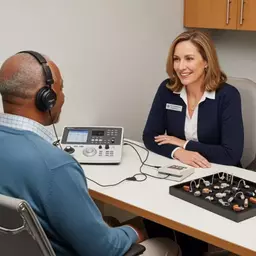Choosing the right support for hearing loss is crucial, and understanding the roles of communication specialists can empower you to navigate this journey confidently. With the right knowledge, you can enhance your engagement with the world around you!
What You Will Learn
- Communication specialists provide essential services such as assessment, therapeutic interventions, and technology guidance tailored to hearing loss needs.
- Different types of professionals, including audiologists, ENTs, and speech therapists, each play distinct roles in addressing hearing challenges.
- Speech-language pathologists focus on developing effective communication skills through individualized therapy and family support.
- Choosing the right communication specialist involves evaluating your specific needs, researching options, and preparing for consultations.
- Open communication with your specialist enhances collaboration, leading to improved outcomes for your hearing health.
- Educating yourself about hearing loss can help debunk myths and empower you as an advocate for your own hearing health.
Services and Specialist Roles in Hearing Rehabilitation
Understanding the key services offered by communication specialists and the roles of different professionals can empower your hearing health journey. For more comprehensive insights into maintaining your auditory well-being, explore simple shifts for better hearing.
Key Services Offered
- Assessment & Diagnosis
- Therapeutic Interventions
- Technology Guidance
- Family Education
Types of Specialists
- Audiologists
- ENT Doctors
- Speech Therapists (SLPs)
SLP's Role in Rehabilitation
- Individualized Therapy
- Auditory Training
- Family Support
Key Steps to Choose a Specialist
- Identify needs
- Research specialists
- Evaluate options
- Consider referrals/insurance
- Prepare questions
Understanding the Role of a Communication Specialist for Hearing Loss
When navigating the complexities of hearing loss, the support of a communication specialist can be invaluable. These professionals are trained to provide a range of services aimed at improving communication abilities for individuals experiencing hearing challenges. Whether it’s through therapy or personalized strategies, specialists help empower you to engage more fully with the world around you!
At HearWise Living, I often hear from readers about their experiences with communication specialists, and it’s clear that understanding the services they offer can make a big difference in your hearing journey. From audiologists to speech-language pathologists, let’s explore the essential roles these experts play.

Defining the Services Offered by Communication Specialists
Communication specialists offer a variety of services tailored to meet individual needs. Here are some key services you might encounter:
- Assessment and Diagnosis: Comprehensive evaluations to identify hearing loss and communication difficulties.
- Therapeutic Interventions: Personalized therapy sessions that focus on improving auditory skills and communication strategies.
- Technology Guidance: Assistance with selecting and using hearing aids and other assistive listening devices.
- Family Education: Workshops and resources for family members to enhance communication and support.
By understanding the specific services available, you can make informed decisions about your care and feel more confident in your path toward better hearing!
Different Types of Specialists: Audiologists, ENTs, and Speech Therapists
When seeking help for hearing loss, you may encounter several types of specialists, each with their own expertise:
- Audiologists: Professionals who specialize in diagnosing and treating hearing-related disorders. They often fit hearing aids and provide auditory rehabilitation programs. For more information on their crucial role, read about an AI's Role in Audiology Care.
- Ear, Nose, and Throat (ENT) Doctors: Medical doctors who treat conditions affecting the ear, including surgical options and medical management.
- Speech Therapists: Specialists focused on improving communication, language, and speech skills, often working in tandem with audiologists.
These roles can overlap, and often, collaboration among these specialists yields the best outcomes for patients. Understanding each type's role can help you choose the right path for your hearing health.
Understanding the Role of Speech-Language Pathologists in Hearing Rehabilitation
Speech-language pathologists (SLPs) play a crucial role in hearing rehabilitation. They specialize in helping individuals develop effective communication skills, which is especially important for those who experience auditory processing challenges. Their work often includes:
- Individualized Therapy: Tailored strategies to improve listening and speaking abilities in various environments.
- Auditory Training: Programs designed to enhance auditory discrimination and processing.
- Family Support: Guidance for families on how to communicate effectively with loved ones facing hearing difficulties.
By partnering with an SLP, you are not just addressing hearing loss but also nurturing your ability to connect deeply with others. This holistic approach can significantly enhance your daily interactions and overall quality of life.
Pro Tip
When selecting a communication specialist, don't hesitate to ask about their experience with your specific type of hearing loss. Different specialists may have varying expertise, and finding one with a background relevant to your needs can enhance your treatment and support. Additionally, consider discussing your personal goals for communication improvement to ensure a tailored approach.
Recap of Key Steps in Choosing and Booking a Communication Specialist
Choosing the right communication specialist is crucial for effectively addressing your hearing loss. Take a moment to reflect on the key steps we've discussed:
- Identify your specific needs related to hearing loss.
- Research various specialists such as audiologists and speech therapists.
- Evaluate the available options based on credentials and services.
- Consider referral pathways and insurance details.
- Prepare questions and concerns to discuss during your appointment.
These steps will not only help you find the right professional but also empower you to actively participate in your hearing health journey. Remember, being informed is a significant part of effective communication!

Reflecting on the Importance of Open Communication
Open communication is the foundation of any successful relationship, especially when it comes to your health. When seeking help from a communication specialist, being clear about your symptoms and concerns can make a world of difference!
- Be honest about your hearing experiences, even if they seem trivial.
- Ask for clarification on any terms or recommendations you don't understand.
- Share your lifestyle and how hearing loss impacts your daily life.
By prioritizing open communication, you’ll foster a collaborative environment that can lead to better outcomes. It's vital to feel heard and understood throughout this process!
Your Path Forward in Managing Hearing Loss
Now that you have the tools to choose a communication specialist, it's time to take action! Seeking help is the first step towards reclaiming your auditory experiences and enhancing your overall quality of life.
Encouragement to Take Action and Seek Help
Don't wait for hearing loss to become a barrier in your life. Taking the first step can be empowering, and I encourage you to reach out to a specialist today! Remember, you deserve to enjoy conversations, connect with loved ones, and fully immerse yourself in your surroundings.
Connecting with Patient Resources for Ongoing Education
Education is a powerful tool when managing hearing loss. At HearWise Living, we strive to offer valuable resources to help you navigate your journey:
- Informative articles on hearing aids and communication strategies.
- Workshops and webinars on hearing health topics.
- Access to supportive communities where you can share experiences.
Always seek out resources that resonate with you and empower your understanding of hearing health!
Understanding Hearing Loss Myths and Advocacy Groups
Lastly, it’s essential to debunk common myths surrounding hearing loss. Education helps combat the stigma that can often accompany hearing challenges. For further support and to connect with others, consider finding hearing loss support groups. Here are a few myths worth addressing:
- Myth: Hearing loss only affects older adults.
- Myth: Hearing aids are only for those who are "deaf."
- Myth: Hearing loss is a natural part of aging and cannot be treated.
By understanding these myths, you can advocate for yourself and others in similar situations. Connecting with advocacy groups can further enhance your support network and provide additional resources.
Remember, at HearWise Living, we’re here to support you every step of the way. You're not alone on this journey—let’s walk it together!
Frequently Asked Questions (FAQs)
What services do communication specialists offer for hearing loss?
Communication specialists provide a range of services including assessment and diagnosis, therapeutic interventions, technology guidance (e.g., hearing aids), and family education to improve communication abilities for individuals with hearing loss.
What are the different types of specialists involved in hearing rehabilitation?
The main types of specialists are Audiologists (diagnose and treat hearing disorders, fit hearing aids), ENT Doctors (medical doctors for ear conditions, including surgical options), and Speech Therapists (focus on improving communication, language, and speech skills).
What is the role of a Speech-Language Pathologist (SLP) in hearing rehabilitation?
SLPs help individuals develop effective communication skills through individualized therapy, auditory training to enhance discrimination and processing, and providing guidance and support for families.
How do I choose the right communication specialist?
To choose the right specialist, you should identify your specific needs, research various professionals, evaluate options based on credentials and services, consider referrals and insurance, and prepare questions for your consultation.
Why is open communication important with my specialist?
Open communication with your specialist ensures that your symptoms and concerns are clearly understood, leading to more accurate diagnoses and tailored treatment plans. Being honest about your experiences and asking questions fosters a collaborative environment for better outcomes.
Recap of Key Points
Here is a quick recap of the important points discussed in the article:
- Understanding Communication Specialists: These professionals provide essential support for individuals with hearing loss through assessments, therapeutic interventions, and technology guidance.
- Types of Specialists: Key specialists include audiologists, ENTs, and speech therapists, each playing a unique role in hearing health.
- Speech-Language Pathologists: SLPs focus on developing communication skills and providing family support to enhance understanding and interaction.
- Choosing the Right Specialist: Identify your needs, research options, and prepare questions to ensure you find the right professional for your hearing journey.
- Open Communication: Being honest and clear about your symptoms fosters better outcomes and a supportive environment during consultations.
- Take Action: Don’t hesitate to reach out for help; empowering yourself is a vital step toward improving your hearing health.









